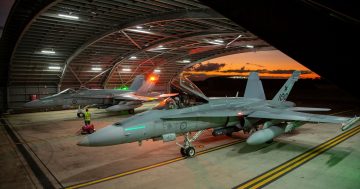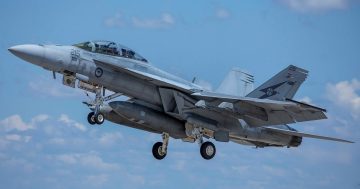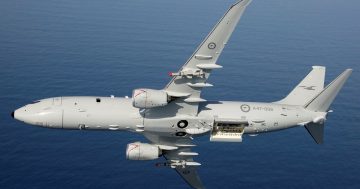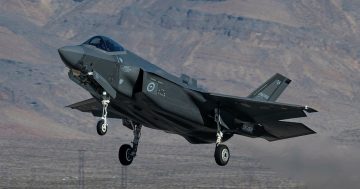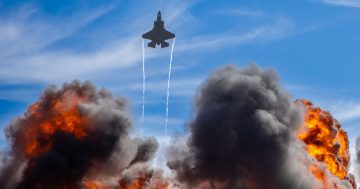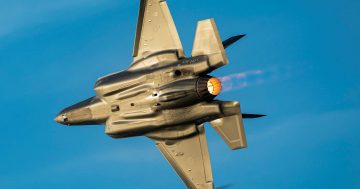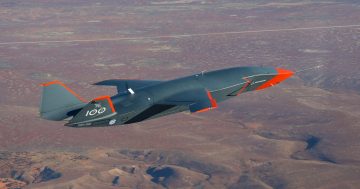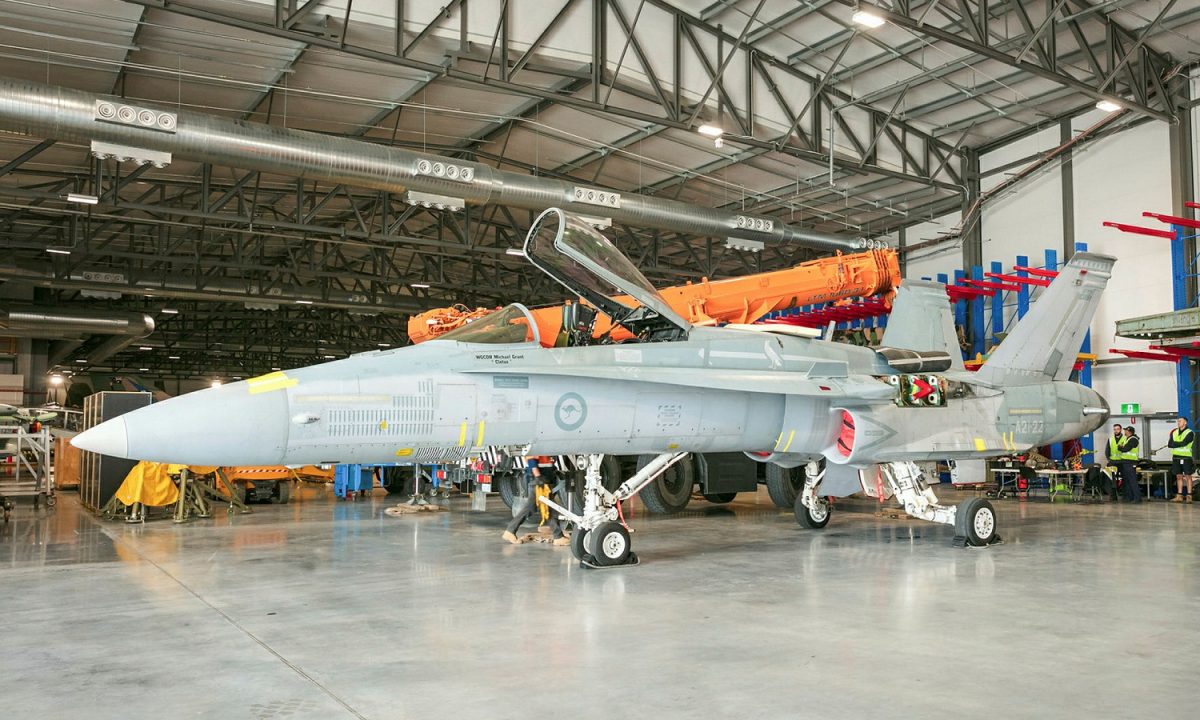
The `Classic Hornet’ A21-22 is reassembled at the Australian War Memorial’s Mitchell Annex after delivery in 2020. Note the mission markings on its nose, each of which denotes an operational mission during operations FALCONER and OKRA. Photo: ADF.
Boeing Defence Australia has announced preparation is complete for the last former Royal Australian Air Force (RAAF) F/A-18A/B Hornet fighter to go on display in a museum.
The completion of the Hornet heritage project comes two years after the final F/A-18A/B was retired from RAAF service. The RAAF is replacing the ‘Classic’ Hornet with the Lockheed Martin F-35A fighter, about 60 of which have been delivered to Australia so far.
The `Classic’ Hornet nickname was given so as to not to be confused with the larger, younger, and more advanced F/A-18F Super Hornet, of which Australia bought 24 in 2009.
The `Classic’ Hornet entered service with the RAAF in 1985. Designed and built by McDonnell Douglas – which merged with Boeing in 1995 – the first four Australian jets were built in St Louis, Missouri.
Two were delivered in a giant US Air Force C-5A Galaxy transport to be assembled at Avalon Airport near Melbourne, while the other two flew across the Pacific from California in May 1985 on an epic 15-hour non-stop flight which included nine air-to-air refuellings.
All but these first four F/A-18A/Bs were assembled in Australia, and the last of the RAAF’s Hornets was delivered from Avalon to RAAF Fairbairn in Canberra in 1991.
In total, the RAAF operated 57 single-seat F/A-18As, and 18 two-seat F/A-18B ‘tubs’. The B-model was used for conversion training and pilot upgrades and, apart from carrying a little less fuel, was also fully combat-capable.
Over the 36-year operational life of the RAAF’s Hornets, only four aircraft were lost in accidents, none of which were directly attributed to aircraft failure.
RAAF F/A-8A/Bs were deployed operationally on three occasions – in 2002 to Diego Garcia in the Indian Ocean at the start of the war in Afghanistan; on Operation FALCONER to Qatar at the start of the Iraq War; and on three separate deployments to the UAE on Operation OKRA from 2015 to 2017 for operations against the Islamic State.
Despite their age, the Hornets were continuously upgraded throughout their service lives, with new radars, cockpit displays, communications, sensor pods, weapons, electronic warfare sets, and structural enhancements.
The RAAF started to retire its F/A-18A/Bs in 2017 when No 3 Squadron was re-established at Luke AFB in Arizona to prepare for Australia’s first F-35As. Williamtown-based No 2 Operational Conversion Unit (OCU) was next to relinquish its Hornets in late 2018, and was followed in late 2020 by No 77 Squadron.
The last squadron to operate the Hornet, No 75 Squadron based at Tindal near Katherine in the NT handed back its Hornets in late 2021.
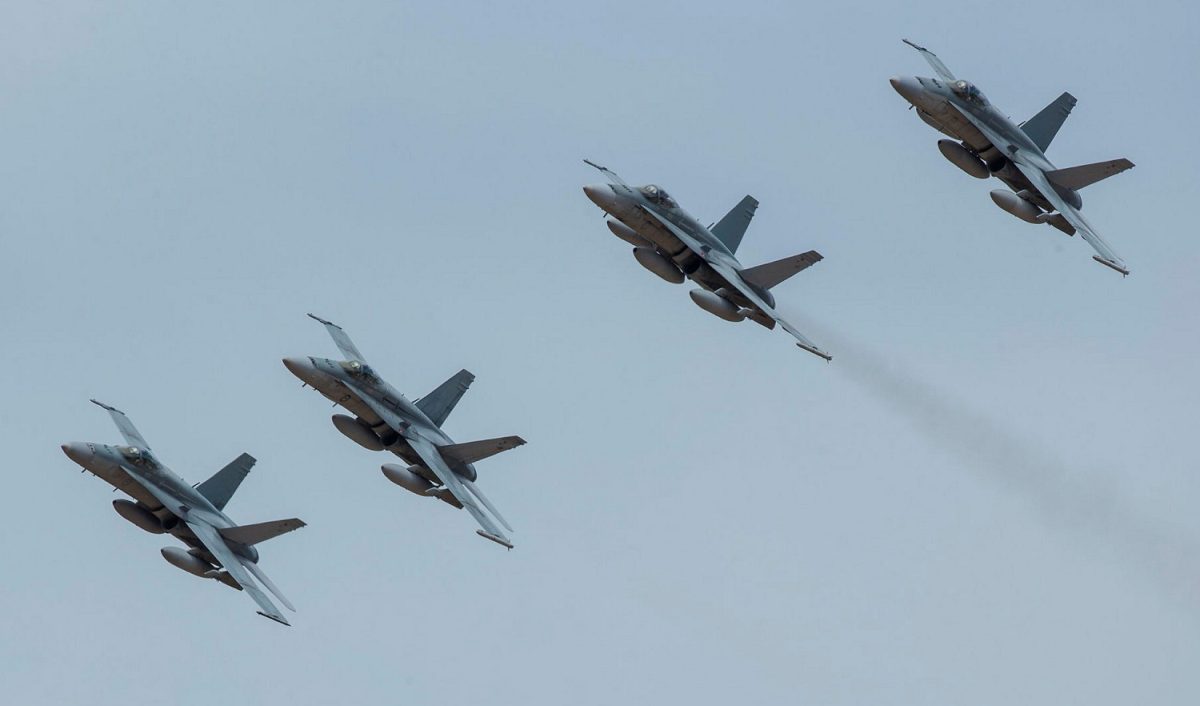
Despite their age, the RAAF’s `Classic’ Hornets remained operationally relevant right up to their retirement. Photo: ADF.
From 2019, 20 Australian Hornets were transferred to Canada – which flies the similar CF-18A/B – to augment that country’s fleet in lieu of receiving its own F-35As from 2025. Malaysia has also reportedly taken a large stock of RAAF engines and spares to support its small fleet of F/A-18Ds.
A further 40 RAAF Hornets had been set aside for possible use by a US-based company that provides air combat training to the US Air Force and other services, but that deal appears to have fallen through.
Boeing has refurbished eight Hornets for Australian museums. The refurbishment process involved the removal of software, toxic materials and lubricants, and any potentially technologically sensitive equipment. Rather than be returned to a pristine ‘as-new’ condition, the airframes were prepared to be representative of how they looked in service.
One of the museums to have received a Hornet is Canberra’s Australian War Memorial (AWM). Hornet A21-22 was delivered to the AWM Annex in Mitchell in 2020 and is planned to go on display in an expanded aviation hall when complete. As a veteran of operations FALCONER and OKRA, it is presented with appropriate mission and squadron markings.
Australia’s first Hornet A21-101 – also the Hornet in which your writer had a flight in December 2000 – was the final aircraft delivered to a museum when unveiled in April 2023 at the Aviation Heritage Museum of Western Australia.
In a 17 May release, head of Boeing Defence Australia’s Sustainment Operations Amy List said: “As the original equipment manufacturer, our heritage companies built the Hornets and introduced them into service; then, for more than 23 years, we worked in partnership with the RAAF and local industry to upgrade, modify and maintain them.
“We also performed all end-of-service-life disposal activities, including preparing 20 jets for sale to the Royal Canadian Air Force and the eight for the Australian heritage project.”
As for the 44 remaining `Classic’ Hornets, their future looks bleak. Under US export rules, if they cannot be broken down for spares for authorised customers, they will need to be destroyed or – like a proportion of the RAAF’s former F-111 fleet – buried in landfill.
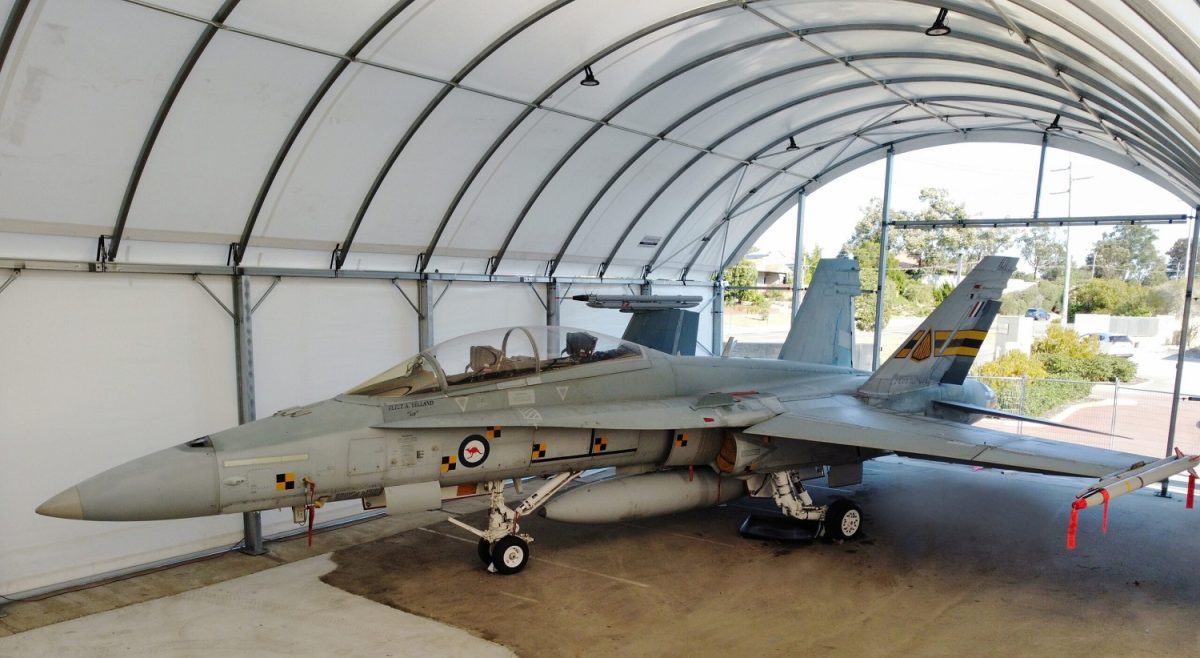
The A21-101, the RAAF’s first F/A-18A/B `Classic’ Hornet wearing the test and unit markings of the Aircraft Research & Development Unit (ARDU) that it carried for the majority of its service life. It’s in its final resting place at the Aviation Heritage Museum of Western Australia. Photo: Boeing Defence Australia.













